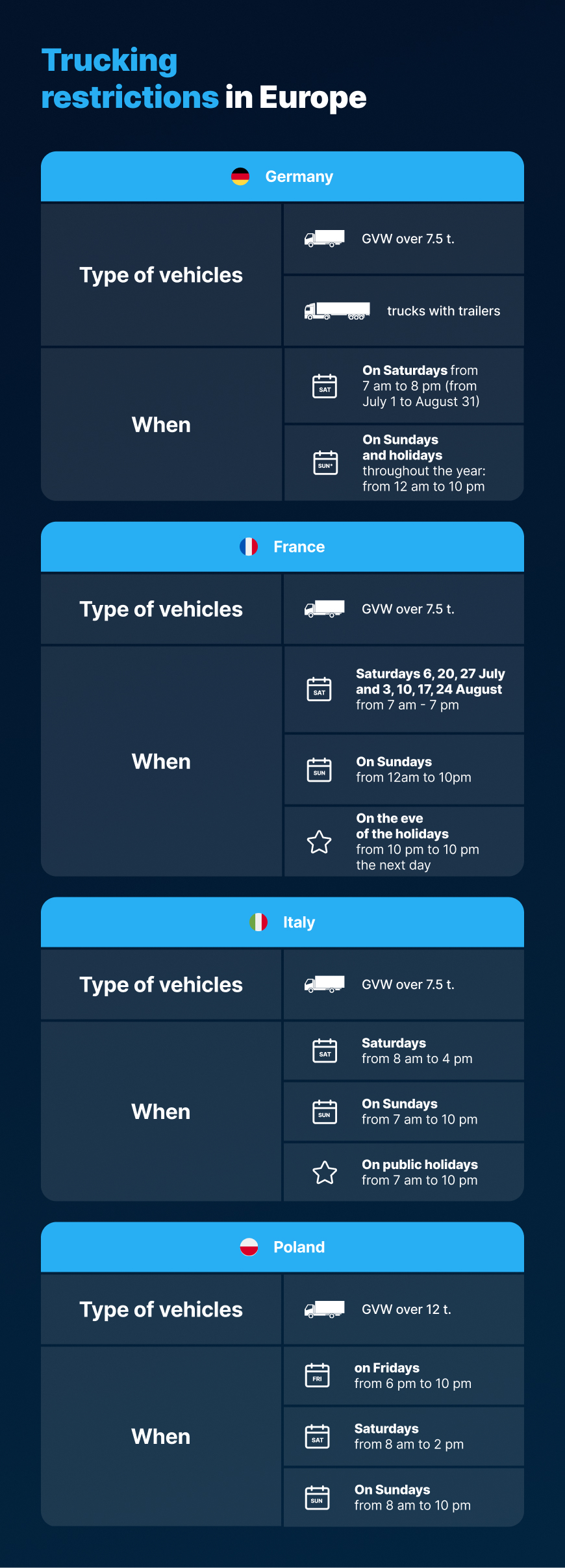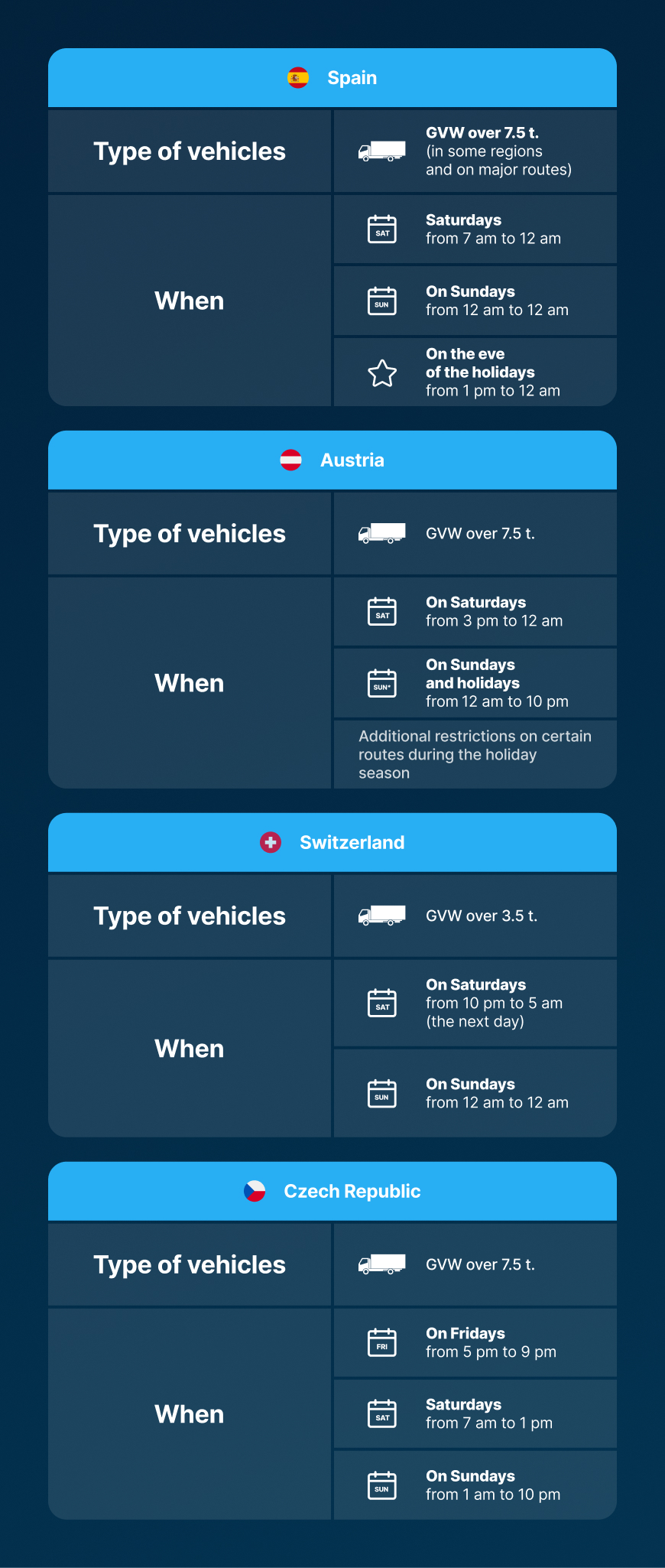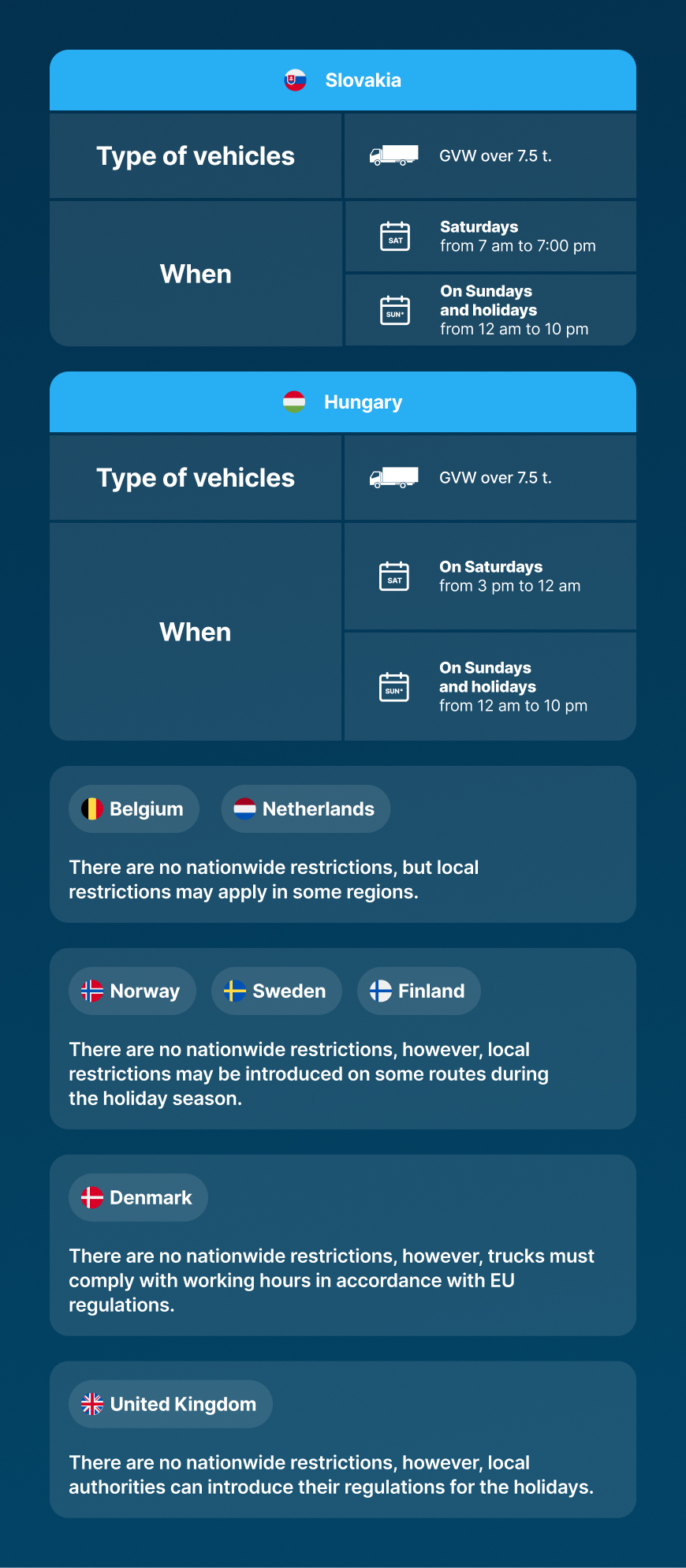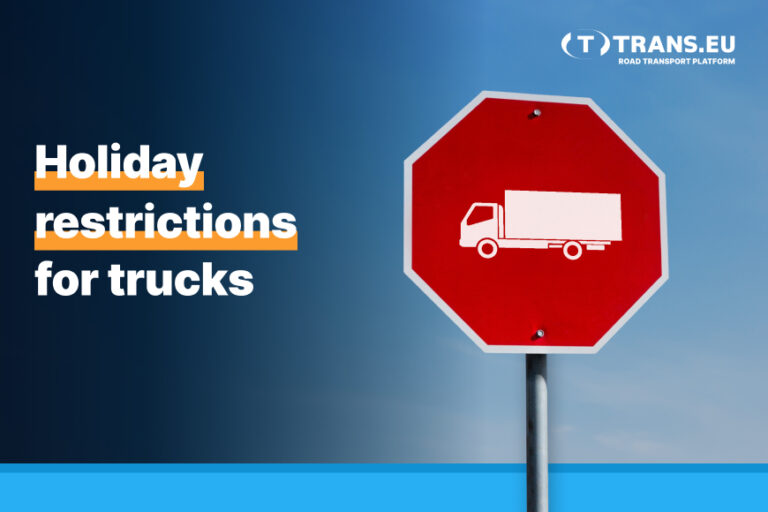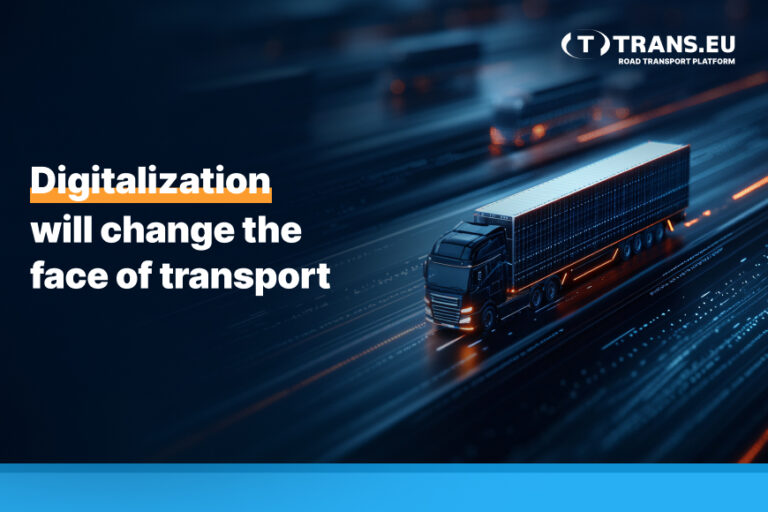Is it really safer?
The introduction of holiday restrictions for trucks in Europe is intended to improve road safety. But is this really the case?
In my opinion, limiting traffic on the roads is not conducive to improving safety. Once the bans are no longer in effect, when the trucks leave the parking lots, everyone is in a hurry to get home and one by one is racing to get there faster. The number of dangerous situations is increasing. For me, a better solution would be not to ban truck traffic. This is the case for some countries. There is no ban on Sundays or even holidays, as exemplified by the Netherlands, Belgium or Great Britain – enumerates Przemysław Isalski.
On top of that, there is a problem with parking spaces.
Bans cause additional traffic jams. Especially in Austria on Monday at 5 a.m. – laughs Dorota Tobór. She emphasizes that drivers need a 24-hour break during the week anyway, and thus fewer cars hit the roads on weekends. Border parking lots are the biggest problem.
Every driver wants to get as far as possible. Therefore, we pass empty parking lots on the way, and when we run out of time, it turns out that the parking lots are full. The worst is with the place near the border. Once, due to the lack of possibilities, I stood in a place intended for passenger cars and it was not without control – recalls the trucker.
Good logistics is the basis
Holiday traffic bans for trucks are not a problem for companies that plan their routes in advance. At Maszoński Logistic, dispatchers and trainers prepare maps for drivers.
If the logistics works really well, you don’t feel the problem. The only drawback is pauses and burning fuel in parking lots. Losses for companies cause many carriers to withdraw from work on weekends – points out Robert Świergiel.
Exceptions to the ban
There are, naturally, exceptions to every rule. The holiday ban on truck traffic does not apply to, among others, vehicles returning from abroad, transporting goods necessary to maintain the continuity of production, carrying hazardous materials, fuels, perishable goods (e.g. medicines, medical supplies, food products) and animals. Vehicles taking part in rescue and humanitarian operations and those that help to remove failures or the effects of natural disasters can also move freely on the roads.
Consequences for violating restrictions
Drivers who do not comply with the introduced restrictions must take into account the legal consequences. For violating the ban, the carrier can be fined up to PLN 2,000, and the transport manager can be fined half of this price. The driver may also receive a fine. Here the rates range from PLN 200 to 500.
As it turns out, the amounts of fines do not discourage dishonest carriers from breaking the bans. It’s easier to navigate the roads with inconspicuous vehicles, such as refrigerated trucks, which, although sometimes loaded with non-perishable goods, run on weekends, because it’s more profitable for the carrier to get a fine once in a while than to to have a break.
This is unfair competition that we have to deal with. Carriers themselves write to us that they will not bother with bans, and as a result, it happens that the goods arrive faster than we assume they will. Either the problem lies in too low fines or in an insufficient number of inspections – sums up Mateusz Najdziński from TVM Transport & Logistics.
